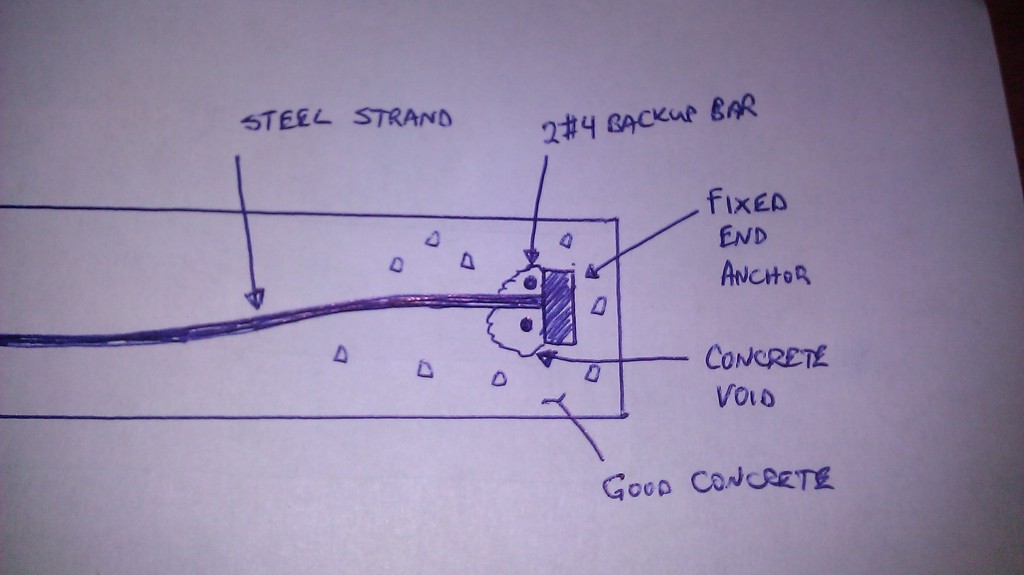On occasion, a post-tension cable may break at the fixed end anchor during the stressing operation. The possible causes of tendon breakage include:
- A kink in the steel strand.
- Incorrect fixed-end seating of wedges.
- A concrete void behind the fixed-end anchor.
- NOTE: If the tendon was installed with a reverse parabola or the anchor was installed at the wrong CGS, then you will typically witness the concrete blowout or spall.
The kink in the steel strand was discussed in a previous blog post. This occurs due to incorrect loading or unloading PT bundle but it is very noticeable during installation and can be corrected prior to the concrete pour.
When the wedges are not correctly seated inside fixed-end anchor, the strand will “pull out” of the anchor. Instead of seeing uniform “bite-marks” on the steel strand, we will likely see “gashes.” These gashes are evidence of the inability of the wedges to properly hold the strand during the stressing operation. (Sorry, no picture yet).
The latter, a concrete void, is most typical cause of tendon breakage, but is usually not noticeable after the concrete is poured. This occurs when the fixed-end anchor moves inside unconsolidated concrete. Eventually, the anchor rotates until it bears against good concrete. The problem is that the “good” concrete may not be a smooth surface and the strand is no longer perpendicular to the anchor. This misalignment causes the steel strand to develop a kink.
The kink is the now the weakest part of the tendons and eccentricities develop during the stressing of the tendon. Granted, there should be 2#4 backup bars behind the anchor, but these will bend during the stressing operation. Eventually, the tendon will break at the fixed-end anchor.
– Neel Khosa, Vice President, AMSYSCO
____________________________________________












